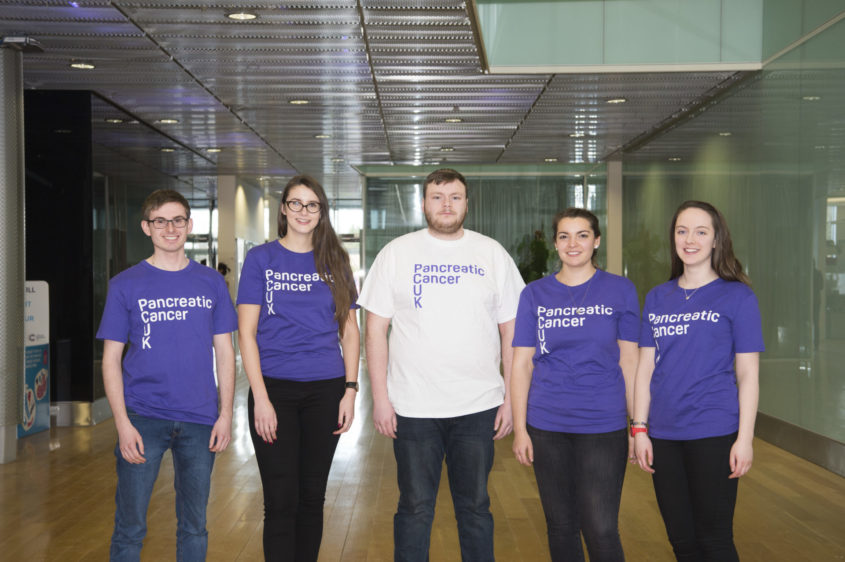Scotmid Co-operative partner with Pancreatic Cancer UK
Scotmid Co-operative partner with Pancreatic Cancer UK to invest in pancreatic cancer research in Scotland
We’re delighted to announce a new two-year partnership with Scotmid Co-operative who have invested a vital £80,000 in the development of a new generation of research scientists to help take on pancreatic cancer.
Scotmid were inspired to lend their support after learning about the work being carried at our ‘Future Leader’s Academy’ based at The Beatson Institute in Glasgow, where PhD students are investigating how pancreatic cancer grows, spreads, and defends itself against current treatments, with the aim of helping to make desperately needed breakthroughs.
Survival of pancreatic cancer has barely improved since the early 1970s. This lack of progress compared to other cancers has been exacerbated not only be a lack of funding – the disease attracts just 2.1 per cent of the UK cancer research budget every year – but also by the relatively small number of researchers focusing on pancreatic cancer. By funding promising new researchers at the beginning of their careers, we hope to see them continue to specialise in the disease in years to come.
Scotmid President, Harry Cairney said:
“Our core purpose is to serve our local communities and improve people’s everyday lives. We hope that by funding research in pancreatic cancer and investing in the next generation of scientists, we can help to improve the statistics around this devastating disease and, in turn, change the outcomes for those affected.”
Diana Jupp, Chief of Executive of Pancreatic Cancer UK, said:
“To transform the appalling survival rate for pancreatic cancer it is absolutely vital that we not only invest in research now, but that we also develop the next generation of cancer scientists. Scotmid Co-operative’s incredibly generous donation to our Future Leader’s Academy will help us continue to harness the talent of the brightest young researchers. Their work, supported by the world-class team at The Beatson Institute, will bring us closer to the answers we so urgently need about this devastating disease, and we hope, inspire them to dedicate their careers to taking on the deadliest common cancer.”
